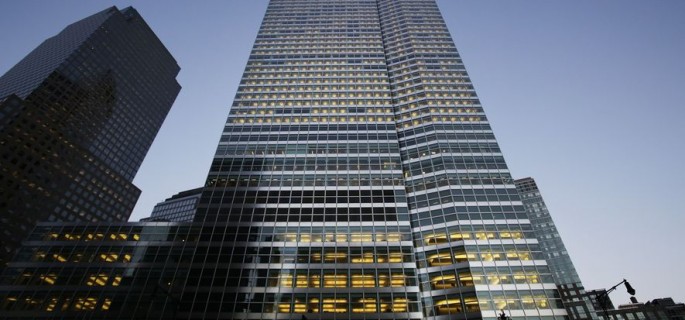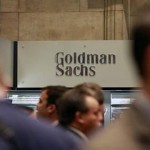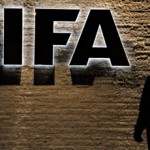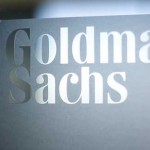Goldman Sachs’s Fight to Avoid Paying Employees’ Legal Fees

We know that paying for a lawyer can be an expensive proposition. The New York Times reported recently that a Turkish gold trader, Reza Zarrab, has hired a veritable who’s who of white-collar defense firms to defend him against charges of violating United States sanctions laws in dealings with businesses in Iran. Costs could rise to the tens of millions of dollars if the case goes to trial.
When a corporate employee is the target of an investigation, the company often picks up the tab for the lawyers under provisions in its bylaws that require it to pay those costs in advance. But when the employee is seen as causing losses from misconduct, corporations can refuse to pay by effectively playing a game of keep-away, fighting the demand for legal fees as long as it can.
Goldman Sachs has found itself in the middle of two such battles recently. The cases illustrate how a corporation can turn its back on an employee when it sees itself as the victim of wrongdoing.
Goldman has been locked in a long-running dispute with a former computer programmer, Sergey Aleynikov, over paying for his lawyer in criminal prosecutions filed in federal and state courts for taking code from the firm that could have been used to set up a competing trading platform. Juries convicted Mr. Aleynikov of some charges in those cases, but the convictions were subsequently overturned.
Under Goldman’s corporate bylaws in effect at the time, it was required to pay for the legal fees of an “officer” of the firm who was the subject of an investigation or lawsuit arising out of work at the firm. The issue is whether Mr. Aleynikov’s title as a vice president prompted that benefit, and his fight for Goldman to pay the lawyers has become almost surreal in the many twists it has taken.
Mr. Aleynikov first filed a lawsuit against Goldman in the Federal District Court in New Jersey to pay for his lawyers in the two criminal cases, and the court initially found in his favor. Goldman appealed, and the United States Court of Appeals for the Third Circuit in Philadelphia reversed that decision. The appeals court found that the term “officer” in the Goldman bylaws was ambiguous, and therefore could only be resolved after a trial.
While that case was pending, Mr. Aleynikov filed a separate lawsuit in the Delaware Court of Chancery seeking payment for his lawyers to defend against claims filed against him by Goldman in the federal case.
In a decision issued in July, Vice Chancellor J. Travis Laster largely agreed with Mr. Aleynikov’s argument that it was reasonable for a vice president of Goldman to believe that he qualified as an officer of the firm — and then ruled against him. Judge Laster noted that Goldman, like many other investment banks, granted the title of vice president quite freely, and that “the line between title and responsibilities is stark, because Aleynikov did not have any managerial or supervisory responsibilities.” Thus, it was a close call whether Goldman wanted every vice president to receive the benefits of indemnification.
The federal appeals court had ruled that Mr. Aleynikov bore the burden of proving that a vice president qualifies as an officer, an analysis with which Judge Laster in the Delaware court disagreed but said he was bound to follow in deciding the case. He concluded that Mr. Aleynikov failed to meet his burden and so was not entitled to payment of the fees.
Although Mr. Aleynikov has been successful in fighting off the criminal charges, Goldman has avoided paying for his lawyers, at least so far. The Delaware Supreme Court can review Judge Laster’s decision, and may rule in the programmer’s favor given the general bias in favor of employees in claims for lawyer’s fees.
The second case involves Joseph Jiampietro, a former managing director at Goldman who was fired in 2014 because an employee he helped oversee received confidential information from the Federal Reserve Bank of New York that was taken by one of its own employees. Both the employee at Goldman and the Fed employee later pleaded guilty to federal charges of taking the information, but no charges were filed against Mr. Jiampietro.
Goldman paid a $50 million penalty to New York State regulators and then last week paid another $36.3 million to the Federal Reserve over the leak. Mr. Jiampietro was also named in the Federal Reserve’s administrative action, which seeks to bar him from the banking industry and impose a $337,500 penalty. His lawyer described the case as “demonstrably false.”
Mr. Jiampietro filed a lawsuit in the Delaware Court of Chancery before the Federal Reserve announced its charges seeking payment of at least $800,000 in lawyer’s fees for the various investigations of the leak, and asked the court to order Goldman to advance the fees for his lawyers in the pending case. The claim revolves around the same provision of Goldman’s bylaws that was at issue in Mr. Aleynikov’s lawsuit: the payment of the legal expenses for an officer.
Goldman has not yet filed a response to the lawsuit. The firm’s current bylaws limit the obligation to pay lawyer’s fees to corporate directors and officers appointed by a resolution of the board.
The case is assigned to Judge Laster, who is much more likely to take a favorable view of Mr. Jiampietro’s claim for legal fees based on his analysis of Mr. Aleynikov’s claim.
Mr. Jiampietro was a managing director at Goldman, a higher position than Mr. Aleynikov’s that came with supervisory responsibilities. Goldman fired him because he failed to escalate the issue of improper receipt of confidential information by those who worked for him after it was discovered. His lawsuit includes pages from Goldman’s annual reports in which his name is listed among the “board members, officers and directors” of the firm, evidence that he was more likely to qualify for payment of his legal fees.
The reason for Goldman’s silence on Mr. Jiampietro’s claim is unclear. He was a step below the most coveted position within the firm, that of partner. Although his job appears to be closer to what is generally considered to be an officer of a company, the ambiguity in the meaning of that term found by the United States Court of Appeals for the Third Circuit in Mr. Aleynikov’s case gives Goldman a basis to argue that even a managing director is not covered by the provision providing for legal fees, even if the annual reports imply otherwise.
Having fired Mr. Jiampietro, the firm cannot relish the prospect that it will be ordered to pay the legal fees for someone whom it believes shares at least some of the blame for the problems created by the leaked information, which resulted in more than $80 million in penalties.
The right to indemnification and advancement of legal fees is not dependent on whether the company is happy with what the employee did. Indeed, the cases that result in litigation usually involve former employees who were linked to misconduct that proved costly to their employer. Delaware courts are protective of former employees to prevent companies from acting vindictively to punish them by refusing to pay even when the obligation is clear.
Goldman can argue that its bylaw is limited to only the most senior levels of the firm, but Judge Laster showed in Mr. Aleynikov’s case that he was not happy with the kind of ambiguity that lets the firm pick and choose whose lawyers it will pay. So do not be surprised to see a ruling in Mr. Jiampietro’s favor.
Source: NY Times





























